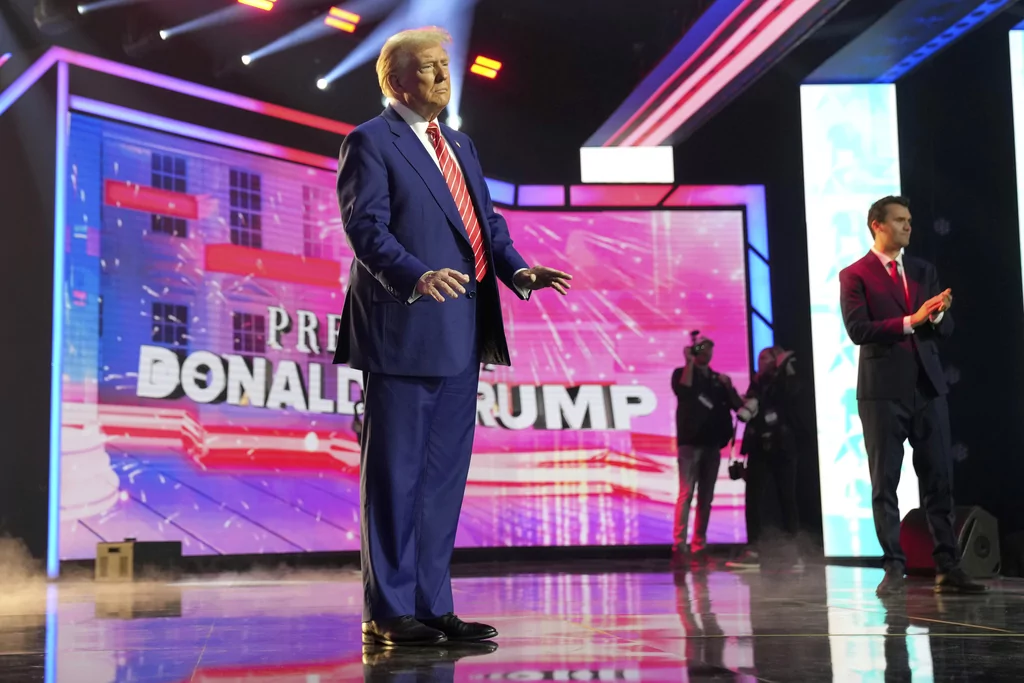

The routine election certification on Monday of President-elect Donald Trump’s victory marked not only a contrast from the violent events four years earlier but also laid bare the Republican Party’s eagerness to embrace his agenda.
Trump, once an outcast from his party for the 2021 Capitol riot, was firmly back in the driver’s seat as Congress cemented his comeback without fanfare, even among Republicans who once rebuffed him or voted to convict him in his second impeachment trial.
“I was one of his staunch supporters in his previous term. Indeed, much of his healthcare agenda were things that I wrote and/or helped conceive of,” said Sen. Bill Cassidy (R-LA), one of seven Senate Republicans who voted to convict Trump and faces a primary challenge for his 2026 reelection. “This is about the will of the American people being acknowledged.”
Trump’s resurgence to the White House will be met with a compliant Congress, thanks to a domino effect of favorable factors: broad buy-in on his legislative agenda, a changing of the guard in Senate leadership, the departure of a fierce critic in former Sen. Mitt Romney, a close working relationship with House Speaker Mike Johnson (R-LA), and a firm grasp on the grassroots of the party.
Perhaps most significantly, the violent events exactly four years earlier that halted certifying the win of then-President-elect Joe Biden were long in the rearview mirror for Republicans.
Sen. Susan Collins (R-ME), a centrist up for reelection who also voted to convict Trump, foreshadowed a “very smooth transition of power” this time around. Collins took solace in the Electoral Count Reform Act, a 2022 law she helped author that was designed to prevent another Jan. 6 attack by making the certification process largely symbolic and harder for lawmakers to object to the counting of electoral votes.
“I think the reforms that we enacted with bipartisan support of updating the 1887 Electoral Count Act will make a difference,” she said.
Sen. John Cornyn (R-TX) cited Trump’s “decisive election” that has fostered party unity with no “real controversy about the outcome. I think that helps.”
Trump will return to the White House with greater leadership allies in both chambers of Congress.
Johnson’s razor-thin House majority will force the president-elect to be more hands-on, as evidenced during last week’s reelection of Johnson as speaker. Trump assuaged last-minute concerns among conservative ranks, an effort that allowed Johnson to retain his gavel in the first round of voting.
In the Senate, Majority Leader John Thune (R-SD) now holds the reins. Trump will no longer have to tussle with former Senate GOP Leader Mitch McConnell (R-KY), who is serving the remainder of his term, which ends in January 2027, as a rank-and-file member. The declining health in recent years of McConnell, a critic of Trump for the Capitol attack, weakened the conservative resistance that he periodically embraced.
Trump also prepares to move back into 1600 Pennsylvania Ave. with the bullhorn that is the support of billionaire Elon Musk and his social media platform X. Tech and media executives have also lined up meetings with Trump, with Amazon, Apple, and Meta, the parent company of Facebook, pumping millions into his inauguration fund.
WHAT HAPPENS NOW THAT TRUMP IS PRESIDENT-ELECT
Sen. Mike Rounds (R-SD) acknowledged that the “violence that occurred” on Jan. 6, 2021, “was real, and we have to recognize that that is a very, very bad day in our country’s history.” But he also spotlighted what he described as a clear choice from voters, no matter what may have unfolded in the past.
“We found out that the Biden administration did not live up to what people had hoped. I think they’re recognizing that we really do have some things that we have to get under control,” Rounds said. “[Voters] are looking for a change, and they expect us to deliver them.”
Ashley Oliver contributed to this report.






